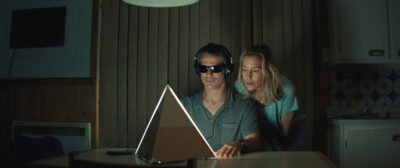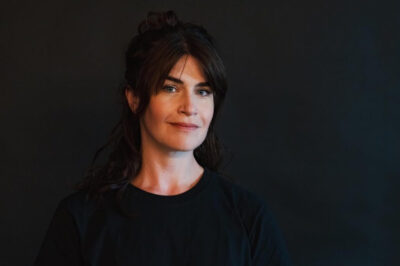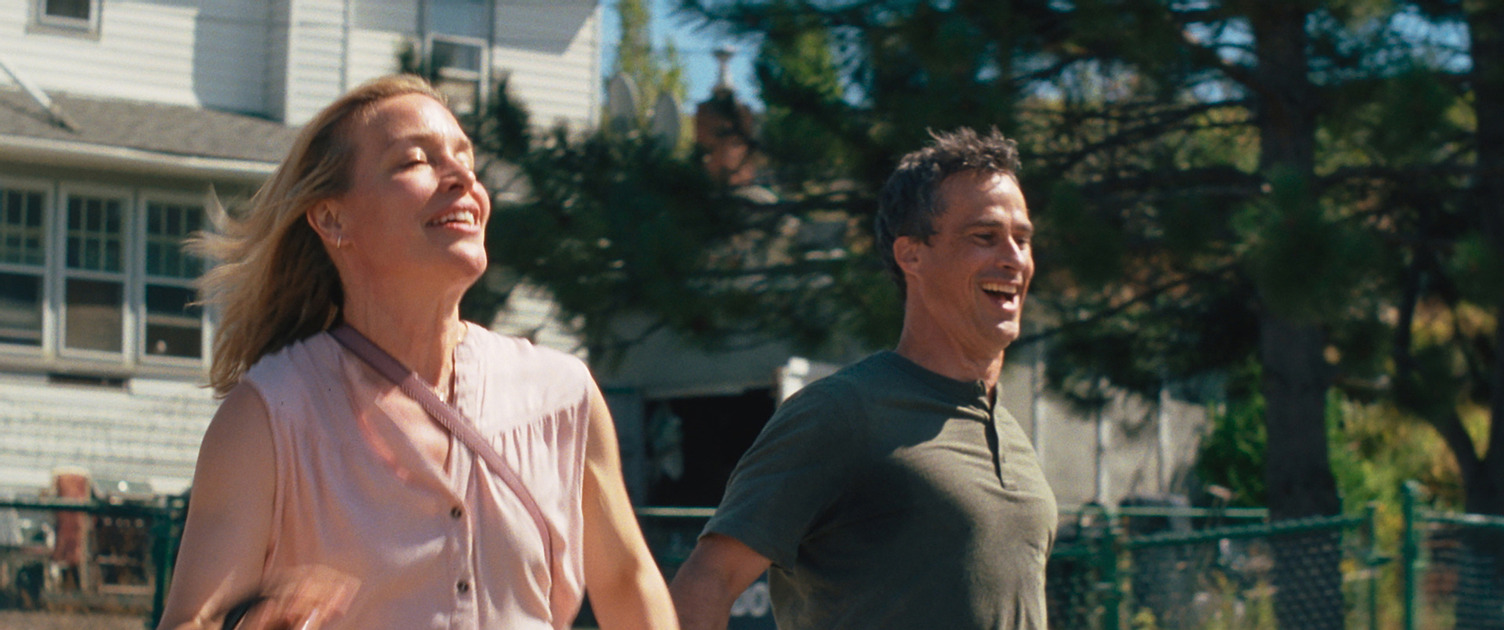Canadian screenwriter and director Anne Émond has a vivid recollection of her state of mind in 2020. With the ongoing pandemic, she not only felt isolated, but also found herself in constant fear of the unknown. Her struggle with depression and deeper concerns over the climate crisis paved the way for her unconventional rom-com, Peak Everything.
After the film had its world premiere at Cannes in May, Peak Everything made its Canadian debut at the 2025 Toronto International Film Festival’s Closing Night. It was during TIFF that Émond spoke with SheDoesTheCity about the inspiration behind her latest directorial effort, arriving in theatres on September 26.
Peak Everything follows Adam (Patrick Hivon), a kind-hearted kernel owner grappling with anxiety over an uncertain future. He isn’t just afraid that the world might change, but he also worries that he hasn’t done enough with his life to make a lasting impact. After purchasing a therapeutic lamp in the hopes that it might help him overcome depression, Adam unexpectedly falls for Tina (Piper Perabo), the lamp company’s customer service representative.
“A friend of mine gave me that therapeutic lamp, the lamp of the film that was supposed to make you feel better. And I don’t know if it worked, but it inspired me to make this movie,” Émond says. “I would say that the film became more and more fun as long as I would write it. At the beginning, it was super depressing because I was depressed, and at some point, I felt better.”

Although many people might go about life without wondering about the legacy they are leaving behind, Adam’s good will leads him to think deeply about his role in making the world a better place. According to Émond, Adam is almost too good for the world we live in. The protagonist finds peace by taking on a simple lifestyle and being kind to everyone, even if he doesn’t receive the same treatment back.
“He’s a lot like me, to be honest. I’m a woman, but I decided that Adam would be a man,” the filmmaker says. “Maybe my main character is too sensitive. Maybe it’s not realistic, but I don’t care. It’s time for us to invent a new type of masculinity on screen.”
Adam falls for Tina over the phone, finding a sense of comfort in listening to her soothing voice. He views her through rose-coloured glasses, until an earthquake occurs and he is propelled to come to her rescue. As Adam and Tina get to know each other in person, he sees that she isn’t exactly who he thought she was—but he remains drawn to her easy-going personality and openness to try new things.
“Love, it’s not about finding the person to help you out. Love is finding the person and wanting to help each other out,” Émond says. “Tina, she’s not perfect, but Adam, I think he’s the coolest person on earth. He’s like, you are who you are.”

Although having Tina by his side allows Adam to be less in his head and more in the moment, she’s married and has two daughters. Despite having a family relying on her and responsibilities of her own, whenever Tina is with Adam, she wonders what her late 40s would’ve looked like if she had chosen a different path for herself. “She’s on the verge of jumping on something new,” the director says. “When you fall in love, you don’t feel like an adult. When you fall in love, even if you’re 50 years old, you just go crazy.”
The rush and excitement of being in love is best shown in one of the film’s steamiest scenes. As Adam and Tina toy with the notion of getting intimate despite the stakes around them, they trace each other’s bodies with their eyes and breaths, but never go as far as touching each other. Émond considers this scene one of her favourites to shoot. Her, Hivon and Perabo spent a lot of time rehearsing it with an intimacy coordinator, making sure that their characters’ desires and the thrill of the “almost touch” made viewers swoon.
“It’s super sensual and tender, but they have to be fair. It’s not time for them to have a sexual relationship,” she says. “I like that I’m a woman writing this kind of scene. A lot of people told me, like, it’s a woman’s gaze. Maybe if a male filmmaker would have written and shot this scene, it would go faster and Adam would go for it.”

Six films into her career, Émond still learns something new with every project that she takes on. With Peak Everything, she didn’t just find healing but also artistic fulfillment. The film’s discussion of climate change and the reality of falling in love in the midst of instability was deeply meaningful to her.
“I think with this film, for the first time in my life, I felt that we could be useful. We, I mean, artists,” she says. “The world is going through a lot of change. The world will face new challenges. Humanity will face them. And I’m thinking for the first time that maybe artists can make that change.”
Although she believes that artists aren’t powerful, she sees Peak Everything as an opportunity to invite all audiences to feel like they can navigate whatever the future might bring. “I hope the film leaves you a little anxious, of course, about the world, because we should be, but also joyful and ready to fall in love and fall in love with the people around you,” Émond says.



 Follow Us On Instagram
Follow Us On Instagram
